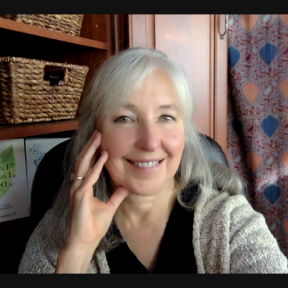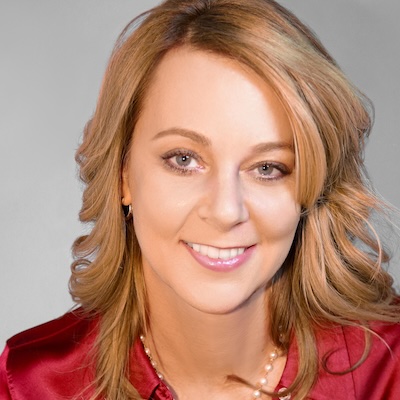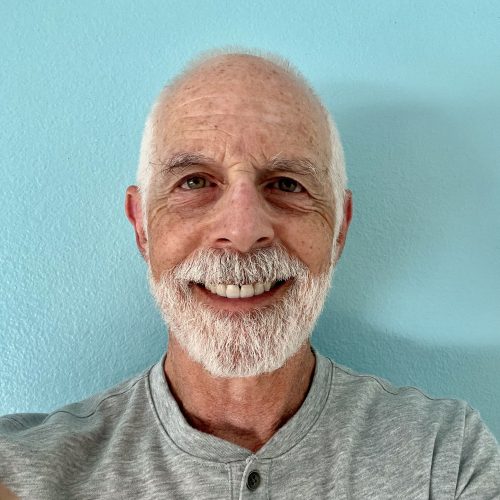Finding Clients
Sell is a four-letter word
n
Salespeople get a bad rap. The salesperson stereotype, is a gladhanding mental lightweight with a u201csmile and a shoeshine,u201d the u201cgift of gabu201d and questionable ethics, who can talk anyone into anything, u201csell a cape to Superman, hay to a farmer, or snowballs in Alaska.u201d New consultants are often told, u201cnever say sell.u201d Sales euphemisms are common in the industry, u201cclient development,u201d u201cbeing called to serve,u201du00a0 or u201chaving problem-centered discussions.u201d
n
A consultant who is between engagements, might say u201cIu2019m on the beach,u201d but that isnu2019t literally true. Being too often u201con-the-beach,u201d being under-utilized or under-applied,u201d portends a u201cperformance concernsu201d discussion. The next step is to u201cget on with the value-added part of your career,u201d (somewhere else).
n
Consulting firms do short term work, studies, engagements, or projects. Sure, there are some firms on retainer with some clients, some who sell repeat-buy products like yearly surveys. Some firms are always on-site because senior partners seem like executive staff. However, most consulting work, has a beginning, middle and END. That means consultants continually acquire new projects or clients, i.e., sell.
n
Therefore, in my view, every consultant is a salesperson, not the negative stereotype above, who is only qualified for criminal activity. No, I mean a person, who listens to a client describe something that isnu2019t happening as expected or is happening unexpectedly, and helps the client solve that problem.
n
Consulting firms have different client acquisition strategies. They may sell analysis or studies that lead to strategy, or operational projects, or they go looking for clients facing specific issues -Innovation, continuous improvement, systems integration, among others.
n
What about the independent consultant? I encourage all consultants to think of themselves as the firm of one, even if you are just starting out and work for a very large firm. Thinking of yourself as the sole consultant, u00a0your u201cpersonal brand,u201d focuses the mind.
n
I didnu2019t do that. I waited till I became an independent consultant to think this way, but I wish Iu2019d started sooner. That first year, I learned a lot – religiously tracking time not just to bill clients but to more accurately estimate future projects, saving time to sell, even mid-project, so when a project ended, another was teeing up. I also learned what worked for me finding clients.
n
Who can hire you?
n
When I sold celebrity speaking engagements on college campuses, I would telephone the college and ask who ran the outside lecture program. Was it the student activities department? Sometimes there was a student; sometimes it was staff or faculty. That person was authorized to buy what I was selling.
n
When I sold packaged training programs for the Forum Corporation (now Achieve Forum, part of Korn Ferry), I called the corporation looking for the Training Manager, usually part of Human Resources. I also called on sales managers to talk about sales training and occasionally I called on senior executives who wanted a custom training program to accompany some change initiative.
n
There was always a decision hierarchy of gatekeepers, influencers, and decision makers. Knowing the decision structure was always helpful, not always required for the sale, but when I lost a sale it was often because I wasnu2019t talking to the decision maker, the one person who could say u201cyesu201d when all others said u201cno.u201d
n
In consulting, first, a client is a person, not a company. He or she should be acting in the interests of the company, but one client hires a consultant. Yes, there may be a review committee and there is a u201cclient systemu201d of influencers, but one person is responsible for the problem, and benefits from the results achieved.
n
Who will hire you?
n
I resisted the idea of an u201cideal clientu201d for too long. Eventually I got around to recognizing that those who hired me were often people who understood the importance of the u201cpeople stuff,u201d but recognized they werenu2019t good at it. A colleague with a PhD in quantitative methods was hired by u201cpeople-peopleu201d whose flat-side was math. One u201c ideal client criterionu201d is skills match.
n
There is also an affinity component. Another colleague works for others of the same ethnicity. I know consultants whose client base are members of the same fraternity, or share the same hobbies (mountain climbing or sailing). Some consultants have broader range than others, but most have an u201cideal client.u201d It is worth thinking about who will hire you.
n
How do you attract a clients attention?
n
Cold calling
n
I sucked at cold calling. Others are better at calling executives out of the blue, and making a sale. One explained. u201cItu2019s a numbers game, make 10 calls a week, get three first meetings, convert one to a second meeting. One in four becomes a third; convert every third meeting to a project. You can improve by making more first calls, or with better targeting or by improving your ratios. Easy-peasy,u201d (for some). This is easier if you are selling one easily understood service offering, as when I sold training.
n
Thought leadership, writing, speaking, and public relations
n
I am often approached by firms like Forbes books, Advantage Press to write u201cthe one-pound-business-card.u201d These firms have ghost writers for a book and articles from your ideas. They arrange speaking engagements, websites, podcasts, or TedTalk videos. You donu2019t make any Money from any of these media, in fact you pay them a hefty sum, but u201cyour business grows.u201d I know consultants who built a profitable practice using these services. Some consultants, do multi-media extravaganzas themselves. Does it work?u00a0 Maybe, but it is time consuming to do yourself and expensive if you hire someone.
n
u00a0Firm thought leaders do research, write articles and books, supported by the firm. Some ultimately go independent. One told me that writing never produced any clients until he got u201cover fifteen Harvard Business Review articles and six books, but now it is my best source of over-the-transom clients.u201d
n
Conversations and referrals
n
This produced 85-90% of my business as an independent consultant. I would regularly u201ckeep in touchu201d with people I worked with in the past. I sent an interesting article, suggested a book or a movie, recommended a customer or potential new hire. Then Iu2019d telephone them and arrange a face-to-face meeting. These meetings were short, often thirty minutes or less, but I would always ask, u201cIs there anyone you know that I should be talking with? Sometimes, the person would say u201clet me think about that,u201d and Iu2019d follow-up later. Sometimes they referred me to someone they knew. Sometimes theyu2019d hire me.
n
Ageing out of consulting
n
I should have kept in touch more with younger members of the client system. Usually I worked with clients my age or older. At seventy, my entire contact list was retired or dead. I love being retired, but observing consultants who work into their eighties and nineties, two things are true:
n
- n
- They wrote several books and
- They surrounded themselves with younger people and kept in touch with junior clients.
n
n
n
I suggested thinking as an independent consultant to focus the consultantu2019s mind on selling. Even if you are a new analyst, client focus is beneficial. I succeeded in consulting by focusing on helping clients achieve results from change. I might have done better inside a firm treating my managers like clients. ud83dude09 Just sayinu2019.
n
n
“,”tablet”:”
Sell is a four-letter word
n
Salespeople get a bad rap. The salesperson stereotype, is a gladhanding mental lightweight with a u201csmile and a shoeshine,u201d the u201cgift of gabu201d and questionable ethics, who can talk anyone into anything, u201csell a cape to Superman, hay to a farmer, or snowballs in Alaska.u201d New consultants are often told, u201cnever say sell.u201d Sales euphemisms are common in the industry, u201cclient development,u201d u201cbeing called to serve,u201d or u201chaving problem-centered discussions.u201d
n
A consultant who is between engagements, might say u201cIu2019m on the beach,u201d but that isnu2019t literally true. Being too often u201con-the-beach,u201d being under-utilized or under-applied,u201d portends a u201cperformance concernsu201d discussion. The next step is to u201cget on with the value-added part of your career,u201d (somewhere else).
n
Consulting firms do short term work, studies, engagements, or projects. Sure, there are some firms on retainer with some clients, some who sell repeat-buy products like yearly surveys. Some firms are always on-site because senior partners seem like executive staff. However, most consulting work, has a beginning, middle and END. That means consultants continually acquire new projects or clients, i.e., sell.
n
Therefore, in my view, every consultant is a salesperson, not the negative stereotype above, who is only qualified for criminal activity. No, I mean a person, who listens to a client describe something that isnu2019t happening as expected or is happening unexpectedly, and helps the client solve that problem.
n
Consulting firms have different client acquisition strategies. They may sell analysis or studies that lead to strategy, or operational projects, or they go looking for clients facing specific issues -innovation, continuous improvement, systems integration, among others.
n
What about the independent consultant? I encourage all consultants to think of themselves as the firm of one, even if you are just starting out and work for a very large firm. Thinking of yourself as the sole consultant, your u201cpersonal brand,u201d focuses the mind.
n
I didnu2019t do that. I waited till I became an independent consultant to think this way, but I wish Iu2019d started sooner. That first year, I learned a lot – religiously tracking time not just to bill clients but to more accurately estimate future projects, saving time to sell, even mid-project, so when a project ended, another was teeing up. I also learned what worked for me finding clients.
n
Who can hire you?
n
When I sold celebrity speaking engagements on college campuses, I would telephone the college and ask who ran the outside lecture program. Was it the student activities department? Sometimes there was a student; sometimes it was staff or faculty. That person was authorized to buy what I was selling.
n
When I sold packaged training programs for the Forum Corporation (now Achieve Forum, part of Korn Ferry), I called the corporation looking for the Training Manager, usually part of Human Resources. I also called on sales managers to talk about sales training and occasionally I called on senior executives who wanted a custom training program to accompany some change initiative.
n
There was always a decision hierarchy of gatekeepers, influencers, and decision makers. Knowing the decision structure was always helpful, not always required for the sale, but when I lost a sale it was often because I wasnu2019t talking to the decision maker, the one person who could say u201cyesu201d when all others said u201cno.u201d
n
In consulting, first, a client is a person, not a company. He or she should be acting in the interests of the company, but one client hires a consultant. Yes, there may be a review committee and there is a u201cclient systemu201d of influencers, but one person is responsible for the problem, and benefits from the results achieved.
n
Who will hire you?
n
I resisted the idea of an u201cideal clientu201d for too long. Eventually I got around to recognizing that those who hired me were often people who understood the importance of the u201cpeople stuff,u201d but recognized they werenu2019t good at it. A colleague with a PhD in quantitative methods was hired by u201cpeople-peopleu201d whose flat-side was math. One u201c ideal client criterionu201d is skills match.
n
There is also an affinity component. Another colleague works for others of the same ethnicity. I know consultants whose client base are members of the same fraternity, or share the same hobbies (mountain climbing or sailing). Some consultants have broader range than others, but most have an u201cideal client.u201d It is worth thinking about who will hire you.
n
How do you attract a clients attention?
n
Cold calling
n
I sucked at cold calling. Others are better at calling executives out of the blue, and making a sale. One explained. u201cItu2019s a numbers game, make 10 calls a week, get three first meetings, convert one to a second meeting. One in four becomes a third; convert every third meeting to a project. You can improve by making more first calls, or with better targeting or by improving your ratios. Easy-peasy,u201d (for some). This is easier if you are selling one easily understood service offering, as when I sold training.
n
Thought leadership, writing, speaking, and public relations
n
I am often approached by firms like Forbes books, Advantage Press to write u201cthe one-pound-business-card.u201d These firms have ghost writers for a book and articles from your ideas. They arrange speaking engagements, websites, podcasts, or TedTalk videos. You donu2019t make any money from any of these media, in fact you pay them a hefty sum, but u201cyour business grows.u201d I know consultants who built a profitable practice using these services. Some consultants, do multi-media extravaganzas themselves. Does it work? Maybe, but it is time consuming to do yourself and expensive if you hire someone.
n
Firm thought leaders do research, write articles and books, supported by the firm. Some ultimately go independent. One told me that writing never produced any clients until he got u201cover fifteen Harvard Business Review articles and six books, but now it is my best source of over-the-transom clients.u201d
n
Conversations and referrals
n
This produced 85-90% of my business as an independent consultant. I would regularly u201ckeep in touchu201d with people I worked with in the past. I sent an interesting article, suggested a book or a movie, recommended a customer or potential new hire. Then Iu2019d telephone them and arrange a face-to-face meeting. These meetings were short, often thirty minutes or less, but I would always ask, u201cIs there anyone you know that I should be talking with? Sometimes, the person would say u201clet me think about that,u201d and Iu2019d follow-up later. Sometimes they referred me to someone they knew. Sometimes theyu2019d hire me.
n
Ageing out of consulting
n
I should have kept in touch more with younger members of the client system. Usually I worked with clients my age or older. At seventy, my entire contact list was retired or dead. I love being retired, but observing consultants who work into their eighties and nineties, two things are true:
n
- n
- They wrote several books and
- They surrounded themselves with younger people and kept in touch with junior clients.
n
n
n
I suggested thinking as an independent consultant to focus the consultantu2019s mind on selling. Even if you are a new analyst, client focus is beneficial. I succeeded in consulting by focusing on helping clients achieve results from change. I might have done better inside a firm treating my managers like clients. ud83dude09 Just sayinu2019.
n
n
“}},”slug”:”et_pb_text”}” data-et-multi-view-load-tablet-hidden=”true”>
Sell is a four-letter word
Salespeople get a bad rap. The salesperson stereotype, is a gladhanding mental lightweight with a “smile and a shoeshine,” the “gift of gab” and questionable ethics, who can talk anyone into anything, “sell a cape to Superman, hay to a farmer, or snowballs in Alaska.” New consultants are often told, “never say sell.” Sales euphemisms are common in the industry, “client development,” “being called to serve,” or “having problem-centered discussions.”
A consultant who is between engagements, might say “I’m on the beach,” but that isn’t literally true. Being too often “on-the-beach,” being under-utilized or under-applied,” portends a “performance concerns” discussion. The next step is to “get on with the value-added part of your career,” (somewhere else).
Consulting firms do short term work, studies, engagements, or projects. Sure, there are some firms on retainer with some clients, some who sell repeat-buy products like yearly surveys. Some firms are always on-site because senior partners seem like executive staff. However, most consulting work, has a beginning, middle and END. That means consultants continually acquire new projects or clients, i.e., sell.
Therefore, in my view, every consultant is a salesperson, not the negative stereotype above, who is only qualified for criminal activity. No, I mean a person, who listens to a client describe something that isn’t happening as expected or is happening unexpectedly, and helps the client solve that problem.
Consulting firms have different client acquisition strategies. They may sell analysis or studies that lead to strategy, or operational projects, or they go looking for clients facing specific issues -innovation, continuous improvement, systems integration, among others.
What about the independent consultant? I encourage all consultants to think of themselves as the firm of one, even if you are just starting out and work for a very large firm. Thinking of yourself as the sole consultant, your “personal brand,” focuses the mind.
I didn’t do that. I waited till I became an independent consultant to think this way, but I wish I’d started sooner. That first year, I learned a lot – religiously tracking time not just to bill clients but to more accurately estimate future projects, saving time to sell, even mid-project, so when a project ended, another was teeing up. I also learned what worked for me finding clients.
Who can hire you?
When I sold celebrity speaking engagements on college campuses, I would telephone the college and ask who ran the outside lecture program. Was it the student activities department? Sometimes there was a student; sometimes it was staff or faculty. That person was authorized to buy what I was selling.
When I sold packaged training programs for the Forum Corporation (now Achieve Forum, part of Korn Ferry), I called the corporation looking for the Training Manager, usually part of Human Resources. I also called on sales managers to talk about sales training and occasionally I called on senior executives who wanted a custom training program to accompany some change initiative.
There was always a decision hierarchy of gatekeepers, influencers, and decision makers. Knowing the decision structure was always helpful, not always required for the sale, but when I lost a sale it was often because I wasn’t talking to the decision maker, the one person who could say “yes” when all others said “no.”
In consulting, first, a client is a person, not a company. He or she should be acting in the interests of the company, but one client hires a consultant. Yes, there may be a review committee and there is a “client system” of influencers, but one person is responsible for the problem, and benefits from the results achieved.
Who will hire you?
I resisted the idea of an “ideal client” for too long. Eventually I got around to recognizing that those who hired me were often people who understood the importance of the “people stuff,” but recognized they weren’t good at it. A colleague with a PhD in quantitative methods was hired by “people-people” whose flat-side was math. One “ ideal client criterion” is skills match.
There is also an affinity component. Another colleague works for others of the same ethnicity. I know consultants whose client base are members of the same fraternity, or share the same hobbies (mountain climbing or sailing). Some consultants have broader range than others, but most have an “ideal client.” It is worth thinking about who will hire you.
How do you attract a clients attention?
Cold calling
I sucked at cold calling. Others are better at calling executives out of the blue, and making a sale. One explained. “It’s a numbers game, make 10 calls a week, get three first meetings, convert one to a second meeting. One in four becomes a third; convert every third meeting to a project. You can improve by making more first calls, or with better targeting or by improving your ratios. Easy-peasy,” (for some). This is easier if you are selling one easily understood service offering, as when I sold training.
Thought leadership, writing, speaking, and public relations
I am often approached by firms like Forbes books, Advantage Press to write “the one-pound-business-card.” These firms have ghost writers for a book and articles from your ideas. They arrange speaking engagements, websites, podcasts, or TedTalk videos. You don’t make any money from any of these media, in fact you pay them a hefty sum, but “your business grows.” I know consultants who built a profitable practice using these services. Some consultants, do multi-media extravaganzas themselves. Does it work? Maybe, but it is time consuming to do yourself and expensive if you hire someone.
Firm thought leaders do research, write articles and books, supported by the firm. Some ultimately go independent. One told me that writing never produced any clients until he got “over fifteen Harvard Business Review articles and six books, but now it is my best source of over-the-transom clients.”
Conversations and referrals
This produced 85-90% of my business as an independent consultant. I would regularly “keep in touch” with people I worked with in the past. I sent an interesting article, suggested a book or a movie, recommended a customer or potential new hire. Then I’d telephone them and arrange a face-to-face meeting. These meetings were short, often thirty minutes or less, but I would always ask, “Is there anyone you know that I should be talking with? Sometimes, the person would say “let me think about that,” and I’d follow-up later. Sometimes they referred me to someone they knew. Sometimes they’d hire me.
Ageing out of consulting
I should have kept in touch more with younger members of the client system. Usually I worked with clients my age or older. At seventy, my entire contact list was retired or dead. I love being retired, but observing consultants who work into their eighties and nineties, two things are true:
- They wrote several books and
- They surrounded themselves with younger people and kept in touch with junior clients.
I suggested thinking as an independent consultant to focus the consultant’s mind on selling. Even if you are a new analyst, client focus is beneficial. I succeeded in consulting by focusing on helping clients achieve results from change. I might have done better inside a firm treating my managers like clients. 😉 Just sayin’.
The post Finding Clients appeared first on Wisdom from Unusual Places.
Originally Published on https://wisdomfromunusualplaces.com/blog/


 Purchase here
Purchase here Purchase here
Purchase here























